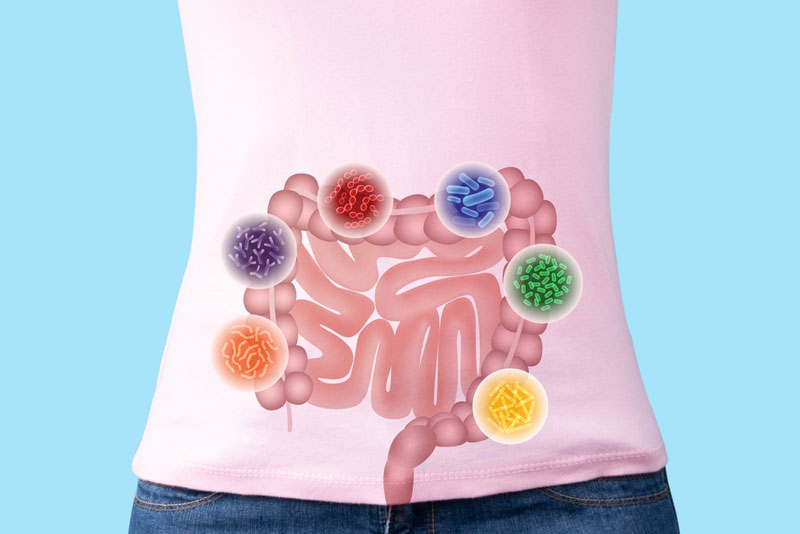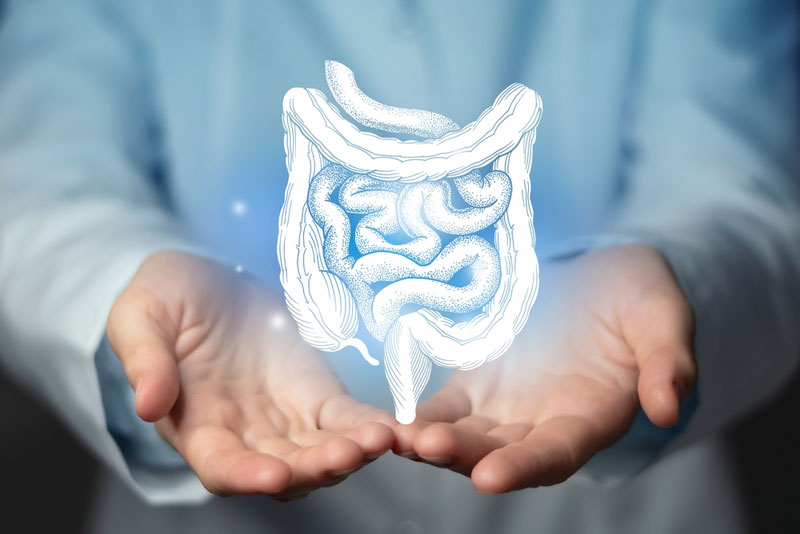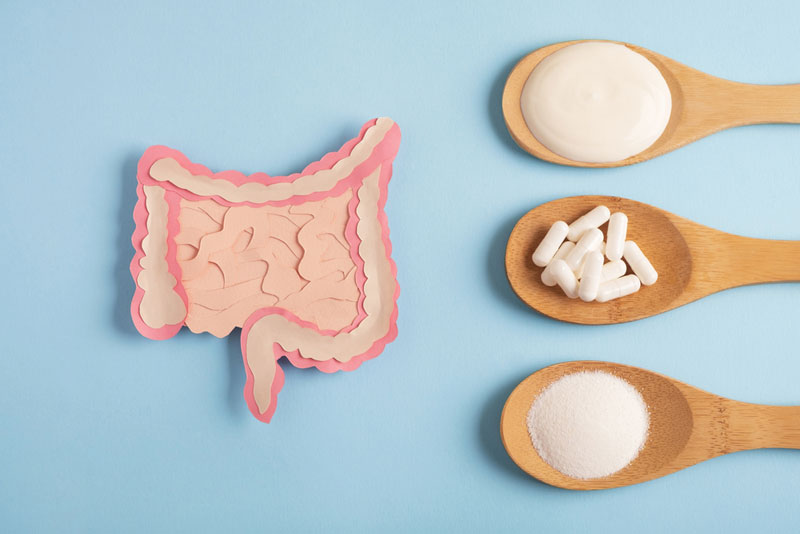The gastrointestinal tract is home to a complex community of bacteria, a core component of the body’s microbiome. Probiotics, the beneficial bacteria residing within, are pivotal in maintaining this delicate ecosystem. By regulating the balance of intestinal flora, probiotics are instrumental in supporting digestive health and, by extension, the overall well-being of individuals.
Reasons Why Someone Might Stop Taking Probiotics?
- Individuals may discontinue probiotics for various reasons. Some may experience alleviation of the symptoms that initially prompted probiotic use, while others may be advised to cease during certain medical treatments like antibiotic courses.
- Personal assessments of cost-benefit scenarios or wellness-related shifts may also influence the decision to stop supplementation.
Primary Functions of Probiotics
Probiotics serve multiple critical functions.
- They aid in breaking down foodstuffs, thus facilitating nutrient absorption.
- These microorganisms also act as a defensive barrier, deterring pathogenic bacteria from establishing colonies within the gut.
- Moreover, they are vital in synthesizing certain vitamins and modulating the immune system.
Clinical research has illuminated the multifaceted benefits of probiotics, ranging from alleviating gastrointestinal disorders like irritable bowel syndrome to mitigating certain infections.
Probiotics also contribute to mental health by engaging in the gut-brain axis and may aid in reducing systemic inflammation.
Different Types of Probiotics and Their Sources
A multitude of probiotic strains exist, each with unique roles. Lactobacillus and Bifidobacterium are among the most prevalent, found in fermented foods like yogurt, kefir, and sauerkraut. Some strains are formulated into supplements, providing a concentrated dose of these beneficial microorganisms.
How Probiotics Interact with Gut Flora?

Probiotics collaborate with the resident gut microbiota, promoting an environment conducive to digestive health. They compete with harmful bacteria for nutrients and space, preventing opportunistic overgrowth. This symbiotic relationship is vital for preserving the integrity of the gut barrier and ensuring the proper functioning of the digestive tract.
Mechanisms of Action: How Probiotics Work in the Body
The mechanisms by which probiotics exert their influence are complex and multifaceted. They engage with the gut’s mucosal immune system, enhancing the body’s immunological responses. Probiotics also modulate gene expression within the gut lining, reinforcing cellular defense mechanisms against pathogens.
Probiotics and the Immune System

The interaction between probiotics and the immune system is intricate and profoundly significant. By stimulating the production of antibodies and promoting the activity of immune cells such as macrophages and lymphocytes, probiotics contribute to a more robust immune defense.
The Impact of Probiotics on Digestion and Nutrient Absorption

Probiotics enhance the gastrointestinal system’s ability to absorb nutrients by facilitating the breakdown of food components. Their enzymatic action helps digest complex molecules, which could otherwise lead to symptoms like bloating, gas, and discomfort.
Why People Take Probiotics?
Individuals often turn to probiotics to address specific health concerns, including digestive issues, and to maintain an equilibrium in gut flora. The prevention and reduction of diarrhea, especially when associated with antibiotic use, is a common motivator for probiotic use. Further, there is growing interest in the potential of probiotics to augment overall health and stave off various diseases.
What Happened When I Stop Taking Probiotics?
The cessation of probiotics can lead to a shift in the gut’s microbial landscape. Initial reports from individuals indicate a reemergence of symptoms previously alleviated by probiotic use. The gut microbiome reverts to its pre-supplementation state over time, possibly restoring the original gut issues.
Typical Reasons for Discontinuing Probiotic Supplements
Reasons for stopping probiotics range from resolving issues for which they were initially used to the occurrence of adverse effects in some individuals. Economic considerations or a desire to simplify one’s dietary supplement regimen also play roles.
Consultation with Healthcare Providers Before Stopping
Discuss with healthcare providers before changing any supplement regimen, including probiotics, is generally recommended, especially for individuals with underlying health conditions or other medications.
Immediate Effects of Stopping Probiotics
- Discontinuation of probiotics may result in immediate gastrointestinal changes, such as alterations in stool consistency and frequency.
- Some individuals might notice a resurgence of abdominal discomfort or bloating.
Understanding the Body’s Immediate Response
The body may react to insufficient probiotics by temporarily increasing susceptibility to minor digestive disturbances. This immediate response underscores the transitional phase as the gut microbiome adjusts to the change.
Changes in Digestive Patterns
Variations in digestion, including constipation or diarrhea, can occur as the gut flora undergoes a shift in bacterial populations.
Potential Return of Previous Gut Health Issues
Issues such as increased gas, bloating, or discomfort may resurface, signaling the return of symptoms managed through probiotic supplementation.
Fluctuations in Immune Responses
The immune system may exhibit minor fluctuations in its defensive functions, reflecting the change in the microbial environment of the gut.
The Concept of Microbial Resilience
The gut microbiome possesses an inherent ability to rebound after disturbances, including the cessation of probiotics, striving to return to its baseline state.
How the Gut Flora Adapts to the Absence of Supplemental Probiotics
The microbial ecosystem adapts by potentially increasing the growth of indigenous bacteria to fill the niches previously occupied by probiotic strains.
Potential Risks Associated with Long-term Cessation
The risk of recurring gut-related issues looms when probiotic supplementation is discontinued over a long period. The absence of these beneficial bacteria may result in a more hostile environment, susceptibility to pathogenic invasions, and reduced mucosal immunity. Over time, this can compromise the gut lining’s integrity, potentially leading to increased intestinal permeability, a condition colloquially known as ‘leaky gut.’
The Body’s Adaptation Over Months and Years
As the body navigates the absence of exogenous probiotics, it embarks on a journey of recalibration. The indigenous microbiota may evolve, potentially fostering the emergence of a self-sustaining and resilient microbial ecosystem. This adaptive process may restore the gut’s functional capabilities, albeit at a diminished capacity compared to when probiotics were regularly consumed.
